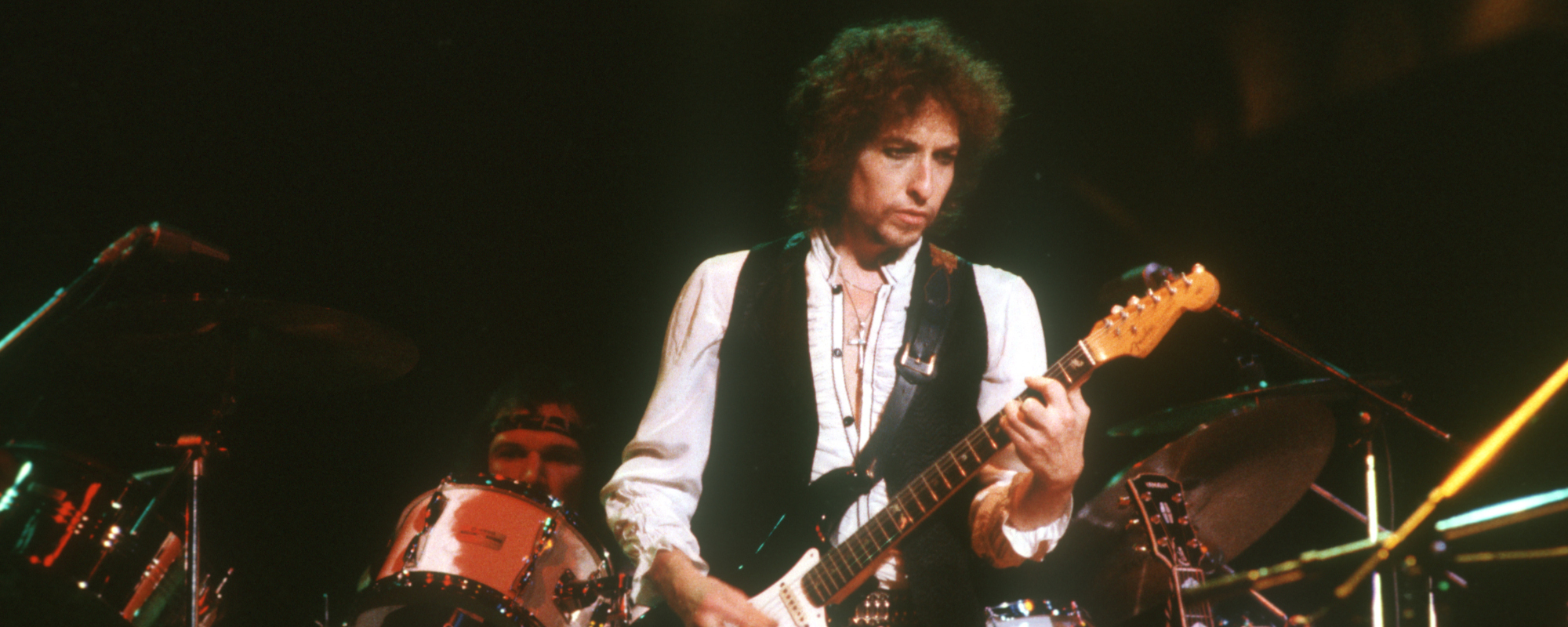Bob Dylan is not only one of the best and most influential songwriters in popular music history, but as of this writing he’s still going strong, having released his 40th album in June of 2023—the soundtrack album Shadow Kingdom. While not every album of Dylan’s has been critically acclaimed, he has made vital music in each decade since releasing his self-titled debut in 1962.
Videos by American Songwriter
That makes condensing Dylan’s career down to a subset of essential albums a difficult task, and for the uninitiated, figuring out where to begin an exploration of his discography can be daunting. These five albums provide a good start, though, as they collectively capture what has always been special about The Bard’s songwriting and performing: his arrangements, lyrics, vocal delivery, willingness to experiment, and incorporation of the styles of the greats who preceded him.
These albums aren’t necessarily his five best, but taken as a whole, they represent what makes Dylan such an important musical figure. You’ll also likely recognize the influence he has had on many of your favorite artists in this sampling of his work.
1. Bob Dylan
Dylan’s debut includes only two original compositions, “Talkin’ New York” and “Song to Woody,” and both pay homage to his musical hero, Woody Guthrie. Particularly on the former track, we get our first exposure to Dylan’s razor-sharp wit and sense of humor (Headed out for western skies / So long, New York / Howdy, East Orange).
On the album’s remaining 11 tracks, we get a sense of Dylan’s knack for arranging. On the album’s opener, “You’re No Good,” Dylan speeds up Jesse Fuller’s original and provides a more raucous performance on vocals, guitar, and harmonica, which completely transforms the feel of the song. On “Fixin’ to Die” and “See That My Grave Is Kept Clean,” he sings about death with a world-weariness that feels far more mature than his 20 years.
2. Highway 61 Revisited
This list could have easily included either or both of the other two albums from his mid-’60s trilogy, Bringing It All Back Home and Blonde on Blonde. While Bringing It All Back Home was Dylan’s first album to feature electric instruments, Highway 61 Revisited was his first album to have songs with electric instruments throughout the album. It has all the classic Dylan elements: political commentary (“Tombstone Blues”), scathing characterizations of a song’s subject (“Like a Rolling Stone”), and plenty of bluesy arrangements.
3. Nashville Skyline
If you were confused the first time you heard “Lay Lady Lay” and realized it was Dylan, you’re not alone. His vocals on this hit single and the rest of Nashville Skyline are almost completely unrecognizable from those of his previous work, as his singing sounds less strained and nasal. The musical compositions are mellower, too.
As you would expect given the album’s title, these songs have more of a country feel, thanks in large part to the liberal use of pedal steel on several tracks. It’s an enjoyable album in its own right, but it’s also an important entry in the Dylan discography, as it showcases his versatility and openness to changing musical direction.
[RELATED: 5 Deep Cut Albums Every Bob Dylan Fan Should Own]
4. Blood on the Tracks
Generally regarded as his best album of the ‘70s, Dylan made Blood on the Tracks during a time when his first marriage was dissolving. The album finds Dylan at his most vulnerable (“You’re a Big Girl Now”) and his most bitter (“Idiot Wind”). It’s one of his most personal albums, but despite its emotional ups and downs, it still retains a sonic consistency. His familiar acoustic guitar sound is all over these songs, but with a lighter, softer feel than in his earlier work.
5. Oh Mercy
This 1989 release represents another sonic shift for Dylan. He chose Daniel Lanois, best known for his work with U2 and Peter Gabriel, as his producer, and for the most part, the album bears the mellow, spare, atmospheric sound of Lanois’ work with those other artists. Notable exceptions are “Political World,” a rocker that harkens back to his work centered on social commentary, and “Everything Is Broken,” which glides along to a rock beat with percussion.
Lanois also produced Time Out of Mind, which was released eight years later. That album has received greater critical acclaim, but Oh Mercy is particularly notable for being Dylan’s first foray into Lanois’ otherworldly soundscape.
Photo by Michael Ochs Archives/Getty Images













Leave a Reply
Only members can comment. Become a member. Already a member? Log in.